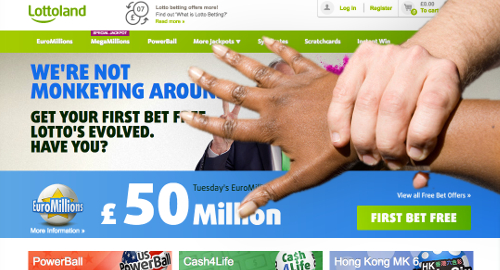 The UK government is threatening to restrict third-party betting on EuroMillions lottery draws, posing a significant challenge to the operations of bet-on-lottery operator Lottoland.
The UK government is threatening to restrict third-party betting on EuroMillions lottery draws, posing a significant challenge to the operations of bet-on-lottery operator Lottoland.
On Monday, the UK Department for Culture, Media & Sport (DCMS) announced an open consultation on ‘Prohibiting Third Party Betting on Non-UK EuroMillions Draws.” The consultation, which closes May 2, follows public comments last month by Sports Minister Tracy Crouch that such third-party bets are “contrary to the spirit and intention” of UK rules against betting on National Lottery results.
Section 95 of the Gambling Act 2005 prohibits UK-licensed gambling operators from offering bets on lotteries that form part of the National Lottery. EuroMillions is a partnership of lottery operators in multiple European countries, and while it’s technically a different draw in each country, it is the same draw.
While conceding that there is “no evidence” to support the claim that third-party betting currently harms returns to good causes, the UK government is proposing the imposition of a new license condition to prohibit UK-licensed operators from offering bets on EuroMillions games in other countries.
National Lottery operator Camelot has been lobbying for such a change since 2015, and their howls of protest grew louder last year when Lottoland declined to follow Camelot’s decision to increase the cost of a EuroMillions ticket from £2 to £2.50.
Betting on lottery outcomes represents just 2% of UK betting operators’ gross gambling yield and the DCMS said “it would be disproportionate to either ban or reclassify these bets, which offer increased customer choice.” The government also said it found “little support voiced” for amending the rules in such a fashion “beyond Camelot, the World Lottery Association and some beneficiary organizations of the National Lottery.”
Nevertheless, the government says third-party EuroMillions bets are “muddying the ‘clear blue water’ between betting and the National Lottery, and resulting in customer confusion.” The government says research indicated that 61% of customers thought such lottery bets were “a way of participating in the EuroMillions lottery.”
LOTTOLAND RESPONDS
Responding to the government’s announcement, Lottoland CEO Nigel Birrell said his group would “welcome the opportunity” to participate in the consultation, while suggesting that it was also time for a “general discussion about the justification” for Camelot’s monopoly on certain UK lottery activities.
Birrell has been a vocal critic of Camelot’s “antiquated offering,” and reiterated that companies like his offered consumers “a viable alternative” to Camelot’s ‘take it or leave it’ offering. Birrell notes that Camelot derives four-fifths of its revenue at the retail level while Lottoland’s EuroMillions product is available only online.
Birrell defended his company, saying “we are licensed, we pay our taxes and we are creating jobs,” while accusing Camelot of being “averse to healthy, licensed, tax-paying, and, above all, fair competition at the same time neglecting customer needs in the worlds we live in today.”
Birrell insisted that Lottoland was “not here to take Camelot’s customers away; we are here to provide more choice, bigger jackpots and better value. Ultimately, this is what is going to drive the market forward.”